2022.10.12
DIALOGUETwo Programs that Link Japan and the U.S., Aiming to Develop the Next Generation of Leaders
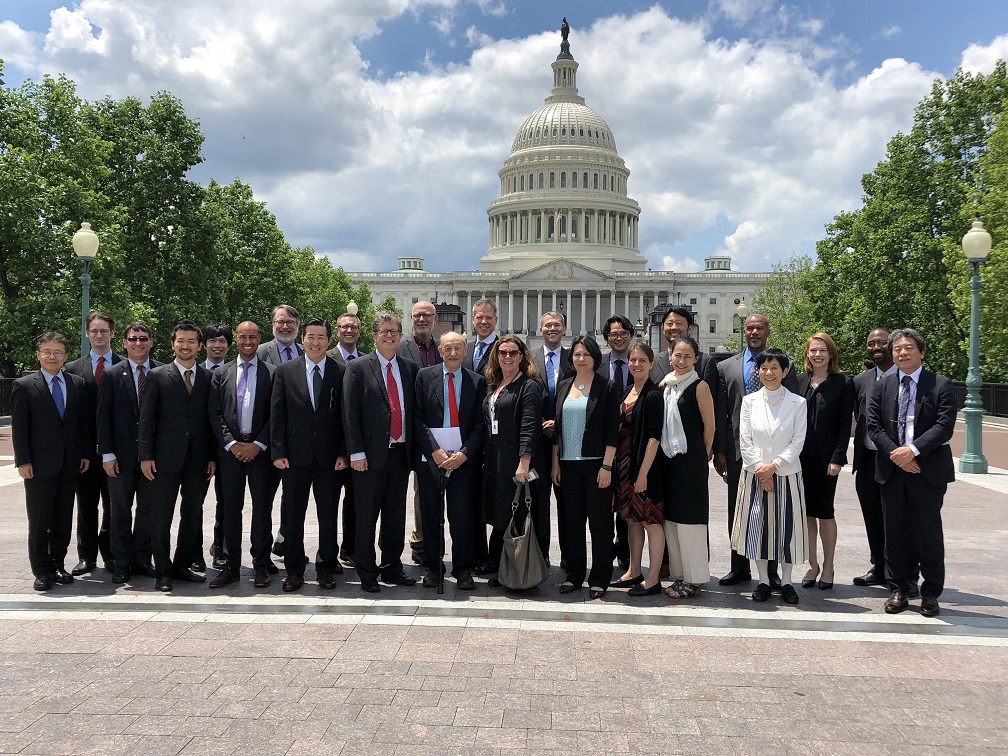
A group photo of the participants of the fifth cohort (2018-2023 – prolonged due to the global COVID-19 situation) of “The U.S.-Japan Network for the Future” program during their visit to Washington, D.C.
The Japan Foundation has long focused on projects to deepen communication between experts from various countries. In terms of Japan-U.S. relations, programs have been created to develop future generations of leaders and build networks in both countries.
Since its earliest days, the Japan Foundation (JF) has been continuously promoting dialogue between experts from around the world. Here, we would like to focus on two programs JF has been promoting with the U.S. to facilitate intellectual exchange.
The Birth of the Abe Fellowship Program
From the late 1980s through the 1990s, a deterioration in sentiment toward Japan caused by trade friction cast a dark shadow over U.S.-Japan relations. In 1990, the late former Foreign Minister ABE Shintaro visited the United States as a government envoy to commemorate the 30th anniversary of the Japan-U.S. Security Treaty. It was during these travels that he proposed the creation of the Japan-U.S. Partnership Fund with the hope of overcoming the growing tensions through the promotion of mutual understanding. Abe’s vision was strongly supported by the leaders in both the U.S. and Japan, and the following year, the Japan Foundation Center for Global Partnership (CGP) was established, financed by the Japan-U.S. Partnership Fund.
CGP’s philosophy was that the people of the United States and Japan and other countries around the globe need to pool their wisdom and cooperate to solve global concerns and issues facing the international community. With a mission statement acknowledging that “the United States and Japan are partners sharing major responsibilities in world issues” and with the aim of “deepening and broadening the interchanges between our two countries from a global perspective,” CGP supported various U.S.-Japan joint research, dialogues and collaboration projects and focused on fostering a new generation who could play a role in the U.S.-Japan global partnership. Its core program was the “Abe Fellowship Program.” This program supported interdisciplinary and international research on the most pressing current global policy issues by scholars from both countries. Since its inception, 447 Abe Fellows have been supported, and many continue to be active internationally, particularly in the field of policy research.
“The birth of the Abe Fellowship reflects the rise of Japan’s position in the world. At the time, Japan’s importance in policy debates was growing,” says Susan J. Pharr, Professor Emeritus of Harvard University, where, until 2021, she was Edwin O. Reischauer Professor of Japanese Politics. Dr. Pharr, who has been committed to deepening intellectual exchange between the U.S. and Japan, came to Japan in 1978 as a Japan Foundation Fellow in Japanese Studies and again in 1994 as an Abe Fellow; in 2016 she was a Japan Foundation Award recipient.
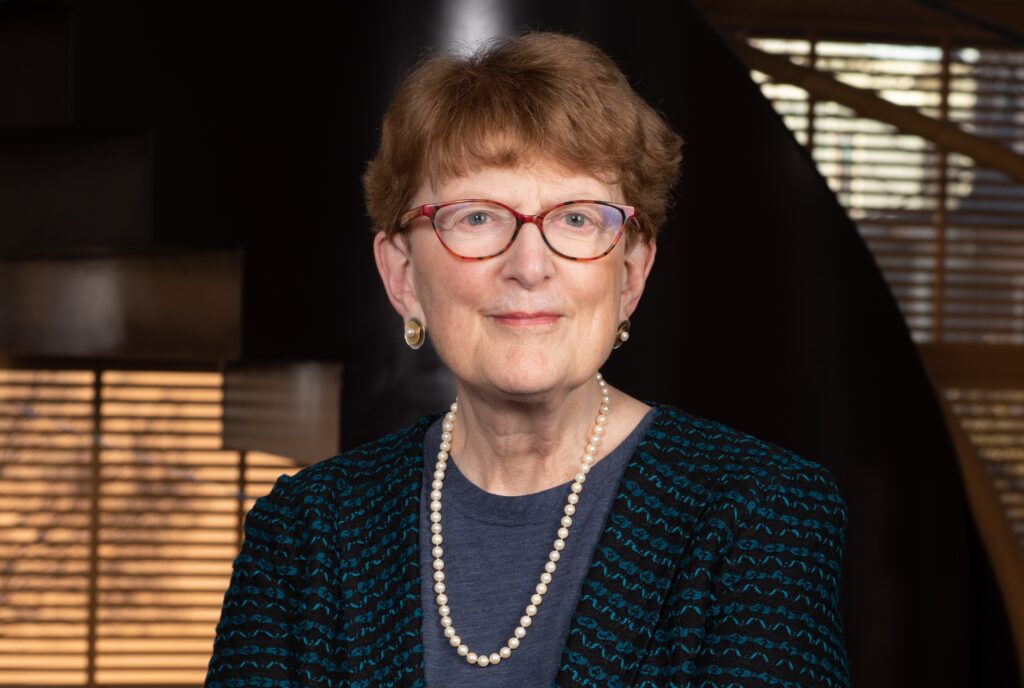
Dr. Susan J. Pharr, is a Professor Emeritus at Harvard University, where, until 2021, she was Edwin O. Reischauer Professor of Japanese Politics. For 32 years she was Director of the Harvard Program on U.S.-Japan Relations. Her research has explored the social basis for democracy in Japan and globally. Photo by Martha Stewart
Dr. Pharr stated, “In the early 90s, when Japan was in its bubble period, tension over trade was high. Many of the commentators who were voicing opinions were not very well informed about Japan. So there was much to be gained by bringing Japan experts into the debate to provide background and context to the discussions that were going on, and at the same time to deepen the knowledge of outstanding scholars and experts in other fields who wanted to learn more about Japan. The Abe Fellowship, by supporting these endeavors, greatly enriched the policy debate over issues and problems relating to Japan. Many countries today seek to engage U.S. experts in the study and analysis of their part of the world by offering them fellowships and study trips; it’s a competitive marketplace out there. Among these various programs, the Abe Fellowship Program stood out for its success in attracting outstanding applicants. When you look at who the leading commentators are on issues related to Japan, a great many deepened their knowledge during their time as Abe Fellows. The program truly stands out as a signal achievement of the Japan Foundation.”
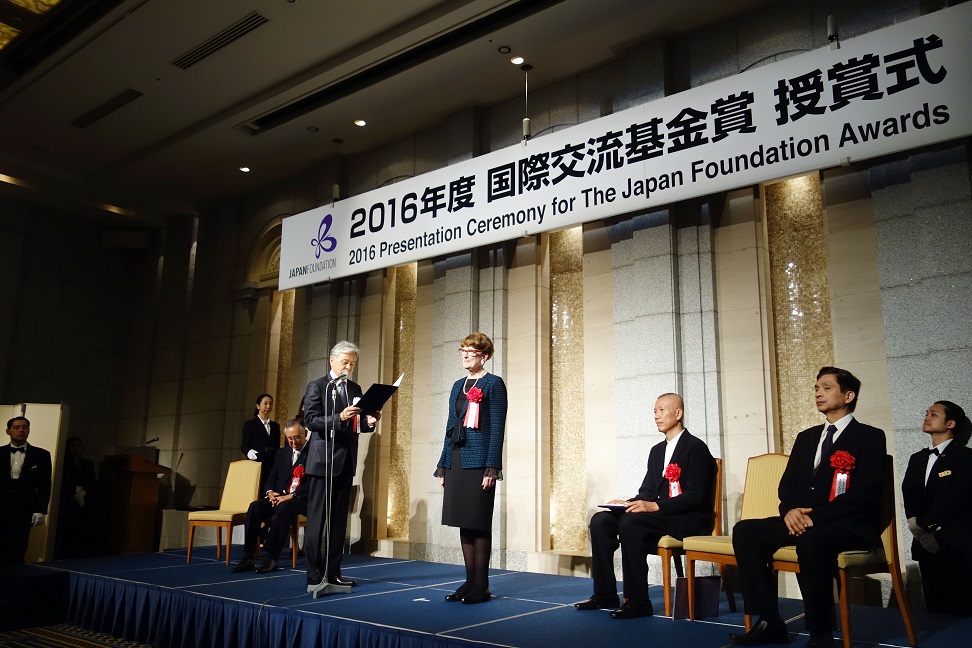
Dr. Pharr received the 2016 Japan Foundation Award for her longstanding efforts and significant contributions to the promotion of international mutual understanding, particularly between the U.S. and Japan, as well as advising numerous JF’s programs.
The Next Generation of Leaders for the Future of U.S.-Japan Relations
In 2009, a new program, “The U.S.-Japan Network for the Future,” was launched, co-organized by JF and the Maureen and Mike Mansfield Foundation. The program is designed for mid-career individuals and the younger generation of Japanese specialists, such as researchers and practitioners, who are expected to be involved with shaping U.S. policy and public opinion. Study tours and training programs are held several times over a two-year period in Japan and the U.S. to deepen their understanding of issues pertinent to Japan-U.S. relations and to form networks amongst themselves. The Network is comprised of 84 members and recently announced and started activities with the sixth cohort. Dr. Pharr and a distinguished team of advisors, including the late Dr. Ezra Vogel, Professor of the Social Sciences Emeritus at Harvard, were instrumental in launching the original program with a mission to foster the next generation of intellectual Japan-oriented leaders in the United States.
Dr. Pharr reflected on the background of the program’s creation. “Our particular focus was younger generation scholars and researchers in the academic world who had a deep knowledge of Japan, but who were under pressure to focus purely on academic research in order to get tenure. While supporting them in their academic work, we wanted to encourage them to expand their horizons and learn more about issues and problems of importance in U.S.-Japan relations, and to contribute to policy debate. We set three goals. First, we wanted to inform participants about current issues and engage them in the way I just described. Second, we wanted to help them along in their chosen careers and facilitate networking between participants in different institutions to foster collaboration and mutual support. Finally, we saw the program as a way to keep Japan studies alive and well. Many scholars have multiple interests, and can get pulled towards the study of other parts of the world. The Network program creates incentives to keep scholars and experts engaged in the study of Japan.”
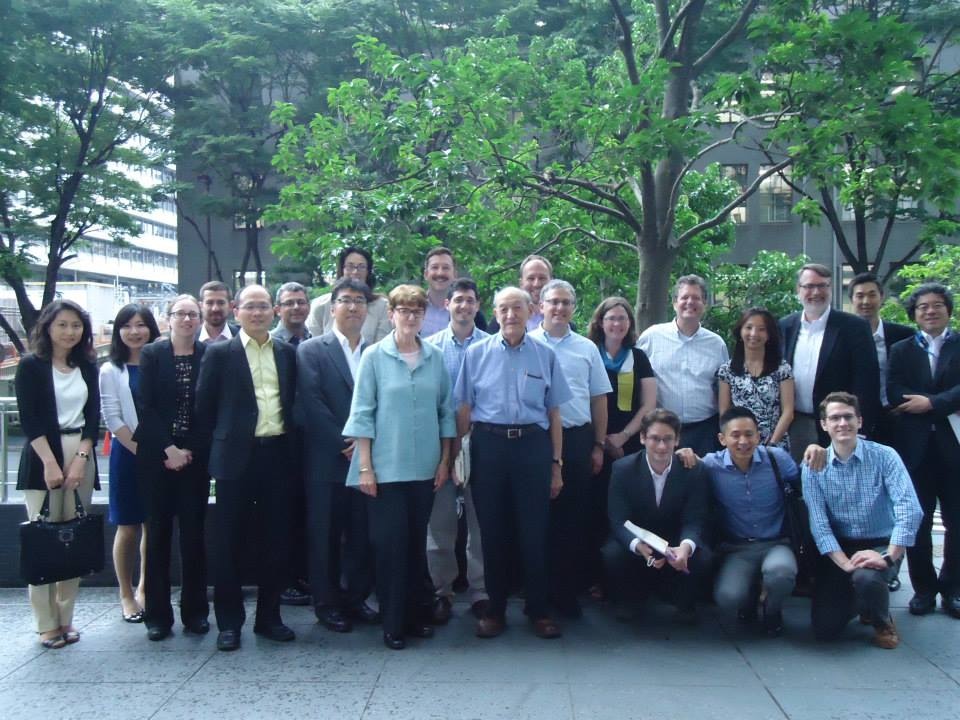
Group photo of the participants of the third cohort (2014-2016) of “The U.S.-Japan Network for the Future” program during their study tour in Japan. Standing in the center are Dr. Pharr and Dr. Vogel of Harvard University. Dr. Vogel passed away in December 2020.
Dr. Pharr continued, “With the establishment of this program, Japanese studies among the younger generation is once again being revitalized. The strength of the program is that it targets a wide range of people involved in politics including think tanks and NPOs as well as academics. What we want to produce are future leaders. Some of our past participants have begun to work as Japan specialists in think tanks, some have also become outstanding researchers leading Japan studies in North America, while others hold key government positions.”
Dr. Joshua Walker joined the program in 2016-2018 as a participant of the fourth cohort. He is currently President and CEO of the Japan Society in New York. Having lived in Hokkaido from a very early age until 18, we asked about his motivation for participating in the program. “When I left Japan at the age of 18, I thought I must learn to become an American when I went to university. I had hoped to one day work as a bridge between Japan and the U.S., but I also wanted to work more widely. So, after graduating from college, I worked for the U.S. government in areas outside of Japan.”
A major turning point for Dr. Walker was the 2011 Great East Japan Earthquake. “For me, Japan was a familiar country where I spent time from the age of one. I took Japan for granted, I didn’t appreciate Japan fully. I actually thought that I had lost my parents in the Great East Japan Earthquake, and when I saw the pictures of what happened to Tohoku, I realized I had to do something for Japan and the people who were suffering. So, after that major tragedy, I began to focus more on Japan, little by little. Even when looking at global issues, I began to think about them in relation to Japan. Later, a friend introduced me to this program, and I applied. I was very surprised when I recognized that “this is a Japan program; it’s going to have a global reach.” When I participated, the mentors were amazing. It was a pleasure to meet Professor Vogel, who had always been a big part of my life, and to spend so much time with him and form such a deep relationship.”
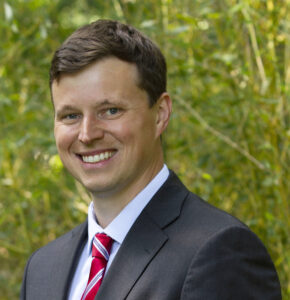
Dr. Joshua Walker is President and CEO of the Japan Society, a Japan-U.S. exchange organization in New York City. He is a Senior Fellow at the Center for the Study of the Presidency and Congress, Adjunct Associate Professor of International and Public Affairs at Columbia University, Presidential Leadership Scholar, David Rockefeller Fellow of the Trilateral Commission, Munich Security Conference Young Leader, and Nakasone Yasuhiro Award Winner.
Through this program, Dr. Walker says he has become acutely aware of the importance of the U.S.-Japan relationship. “I think there should be more successors to the older generation such as Professor Vogel and Professor Pharr. Japan needs friends like us, Americans for the next generation. I still keep in touch with my fellow participants, and we feel a responsibility to give back to the next generation.”
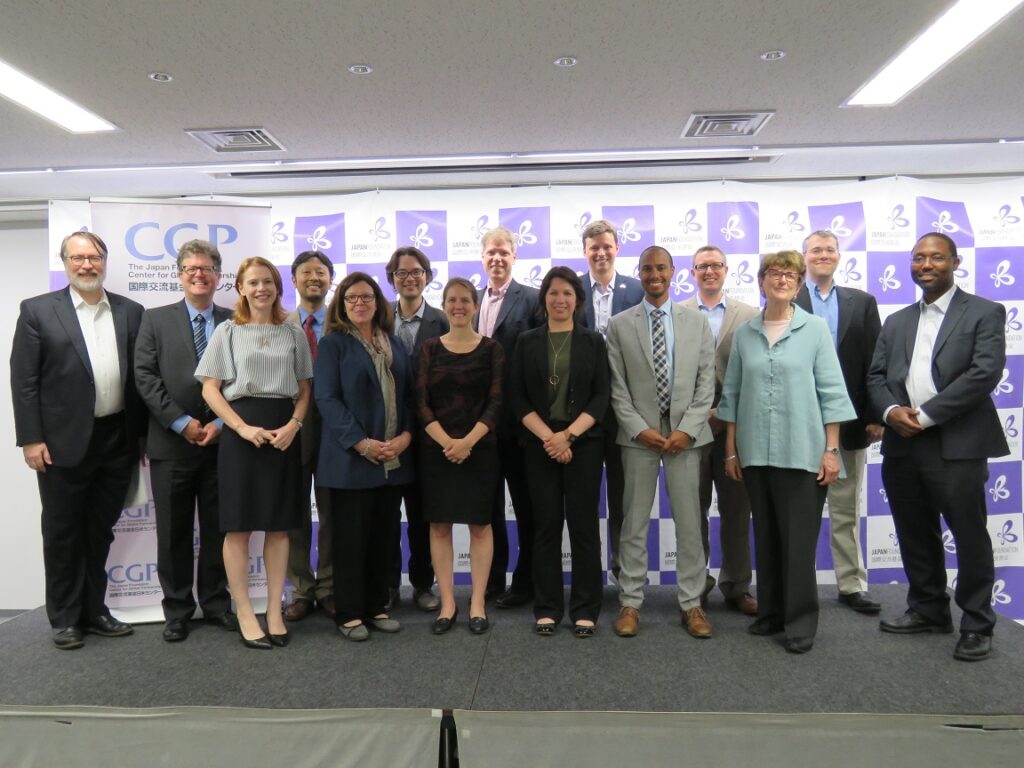
Group photo of the participants of the fourth cohort (2016-2018) who visited Japan, including Dr. Walker who stated, “In addition to the high quality of education, this program combines the unique experience of Japanese culture and in-depth discussions that can only be had in a retreat setting. The bonds I have formed with my mentors and participants are lifelong assets to me.”
Today, the world is once again in the midst of turbulent times. Dr. Pharr stated, “I can’t remember any time when international relations have been shifting as much as they have. But there are alliances that are anchored during this period of change and U.S.-Japan relations were built brick by brick over the post-war period, coming out of a terrible war and have held together at the grass roots. The intellectual exchange component of that is crucial. This is a structure that took a long time to build, and needs to be preserved to help us in this new fluid situation we are now entering.”
JF will continue to support the efforts of tomorrow’s leaders in Japan and the U.S. to resolve global issues, in order to contribute to the world based on Japan-U.S. cooperation.
【Related page】
American Scholar Revealed the Profound World of The Tale of Genji
The Legacy of Japan-U.S. Grassroots Exchange Programs Across the U.S.
